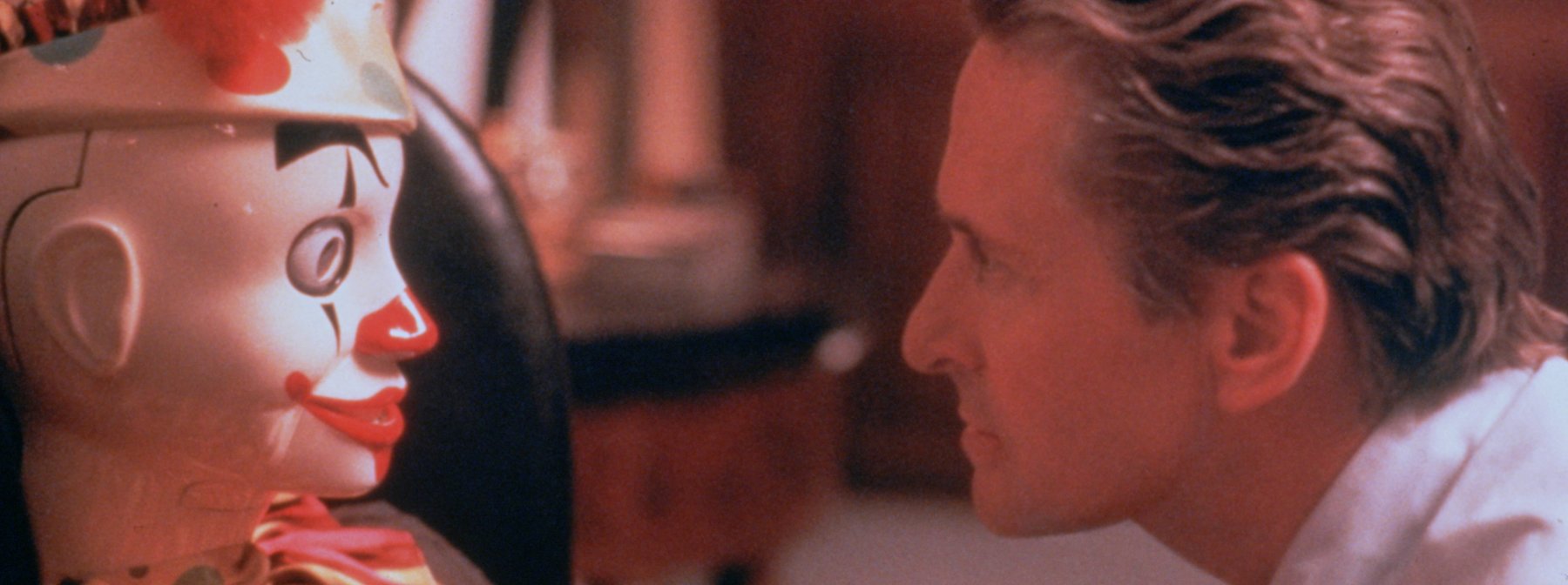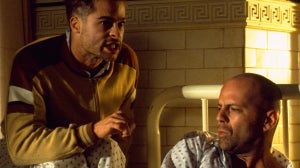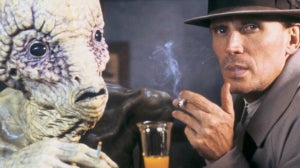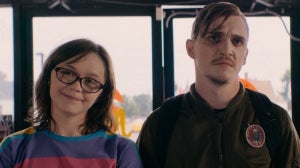
I’ve always had a soft spot for David Fincher’s third feature, The Game, even if the director has voiced his own negative feelings about the film, specifically its third act. It was one of those films I first saw while channel hopping – do we do that anymore? Certain generations will remember that hyperactivity with the remote, searching the stations for something to watch. Sometimes you’d stop at something that caught your eye, and even if you’d missed the beginning, it didn’t matter.
This is how I first entered the paranoid ordeal of investment banker Nicholas Van Orton, played by Michael Douglas. A workaholic with a failed marriage behind him, he’s about to turn 48, the same age his father was when he took his own life. When Nicholas’ brother Conrad (Sean Penn) gifts him a voucher for a game run by Consumer Recreation Services, he’s thrust into an unpredictable series of events, that compromises his physical and financial wellbeing.
Fincher’s suspenseful 90s gem is one of those films that personally carries with it a nostalgia for something lost. Now, the algorithms of streaming services are our curators, and whenever browsing the choice of films, we start at the beginning. Technology, or the way we access films, has sadly eroded that spontaneous discovery, even an incomplete encounter, which was a fitting way to discover The Game, which remains an evasive film.
Fincher's Forgotten Classic
On occasions, I’ve asked myself whether The Game was ultimately blessed with an unenviable fate? If falling between Fincher’s first “great” serial killer film, Se7en (1995), and Fight Club’s (1999) violent journey into a twisty psychological character study, is not an unenviable fate, then let’s say it has always had its back up against the wall for our attention.
Admittedly, I’ve never settled on an opinion about Fight Club. From my first viewing until now, I find it a deeply unsettling and difficult film to watch. I can’t deny it’s an impressive work, yet personal bias has relegated it to the shadow of my personal favourite, Se7en.
There’s something about the dark and dank urban detective thriller, the concept of serial crimes motivated by the seven deadly sins that has always tickled my dark soul. After all, I’ve always been the glass is half empty type of person, with a penchant for pessimism over nauseating optimism. Maybe therein lies the inevitable personal appeal of Fincher’s dark auteurist visions, that includes The Game, with its night set pieces, and daylight scenes dulled by Nicholas’ paranoia.
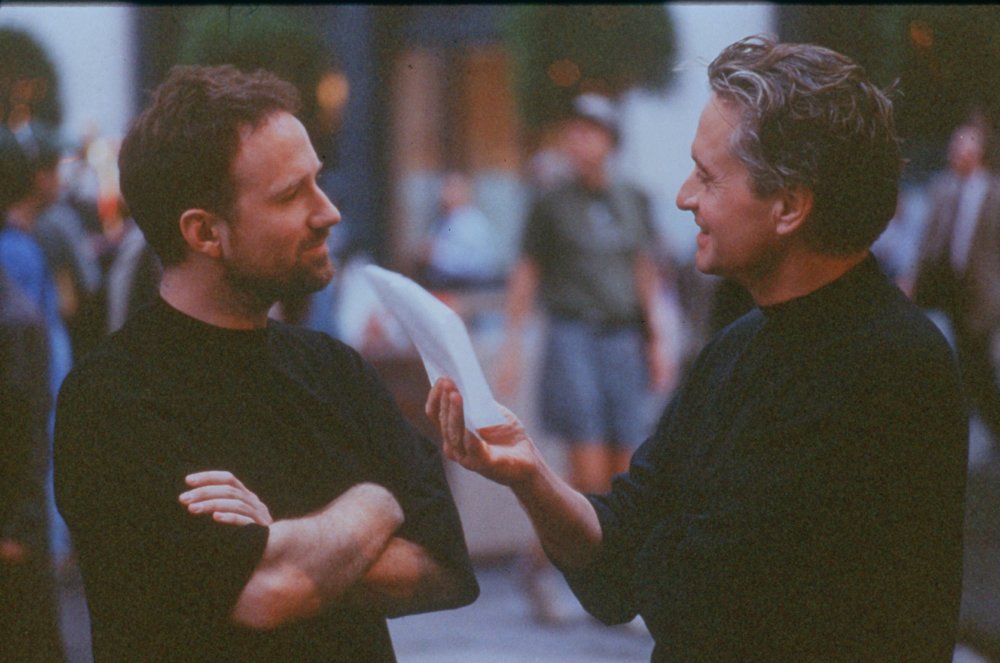
Fight Club itself might be an act of contrition, or redemption for the director. His paranoid thriller is playful, but features heavy themes of suicide, manipulation and dictatorial-style power dynamics. The Game, however, allows us to find pleasure in the darkness. In hindsight, Fincher’s dissatisfaction with the film’s final act, too safe and lacking the punch of Se7en’s head in the box scene, led him to explore a more belligerent and anti-social vision of human nature in Fight Club.
The Game, however, has always been an oddity, revealing a glimmer of light in Fincher’s oppressively sullen visions with its happy ending. Compare The Game and his other films of the decade to his latter works, and we can see the guttural darkness eases, despite The Social Network (2010) and Gone Girl (2014) still exploring the toxicity of human nature and our relationships.
A film of contradictions, it was met with a positive critical appraisal on its release, and yet performed poorly at the box office. Now, considered a cult classic, while it has escaped the shadows of the two films that cemented Fincher’s prominence in the 1990s, it remains, in some sense of the word, his forgotten classic.
Existential Crisis
Directing our gaze towards the two films that preceded his paranoid thriller, the much maligned Alien 3 (1992) and Se7en, these films may surprisingly inform our perspective of The Game. Nicholas Van Orton is an evolution, or an off-shoot of Alien 3’s Ellen Ripley (Sigourney Weaver) and Se7en’s Detective David Mills (Brad Pitt). Also, the three films are joint exercises in suspense, connected by their visual aesthetic, albeit their genre designations are broad: sci-fi horror, crime thriller and paranoia thriller.
At a glance, the shift from an investigation led by detectives, Somerset (Morgan Freeman) on the cusp of retirement, and new transfer and homicide rookie Mills, to an investment banker caught up in a game he signed up to, appears to separate Se7en from The Game. The serial killer thriller, however, is itself a meticulously constructed game, or puzzle. Behind the gamesmanship in both films is a clearly defined purpose, as ludicrous or as unhinged as they might seem.
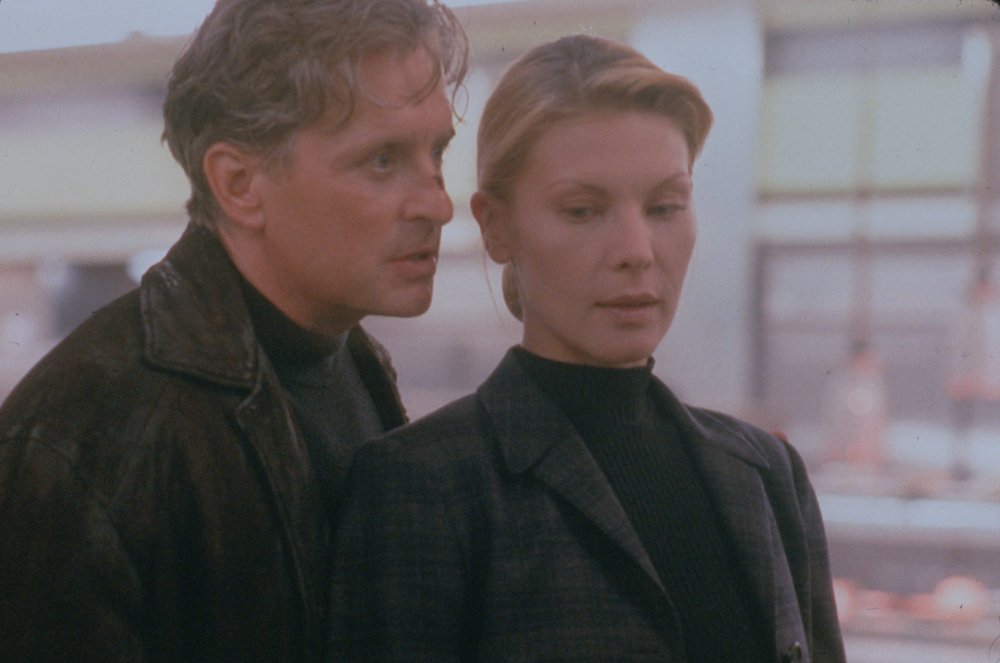
Se7en’s killer, John Doe (Kevin Spacey), is acting with deliberate intent. He exercises patience in his madness to complete his murderous narrative. Meanwhile, the game Nicholas is thrust into is driving towards a potential transformation that will liberate him from his existential crisis. In order for the said transformation, he must confront his own mortality, which creates a nerve-shredding ordeal for the audience, as much as the character. Unlike Se7en which is built around a final twist, The Game continually uproots Nicholas’ life with a series of suspenseful and dramatic twists, in addition to the eventual twist that’s a play on the idea of events just being a dream. The Game is a more openly intricate work, whereas Se7en exemplifies a subtle and patient build up to the dramatic reveal.
Fincher’s first three features all ruminate on the theme of mortality, but each packages it differently. In one scene, Nicholas says there’s a person behind the curtain, suggesting he’s performing in his own personal reimagining of The Wizard of Oz. In Nicholas’ mind, he himself is in survival mode as he struggles to reclaim his life, and unbeknownst to him, the reality of the life and death stakes are a manipulation. In comparison, Ripley’s ordeal in Alien 3, is a pureblooded survivalist struggle.
A closer look at both protagonists sees them trapped in situations where trust is a potentially precarious and deadly decision. Who can Nicholas trust? Which strangers might be working for CRS, and who amongst his family and friends are compromised? Can Ripley trust any of the male inmates of the Planet’s penal colony?
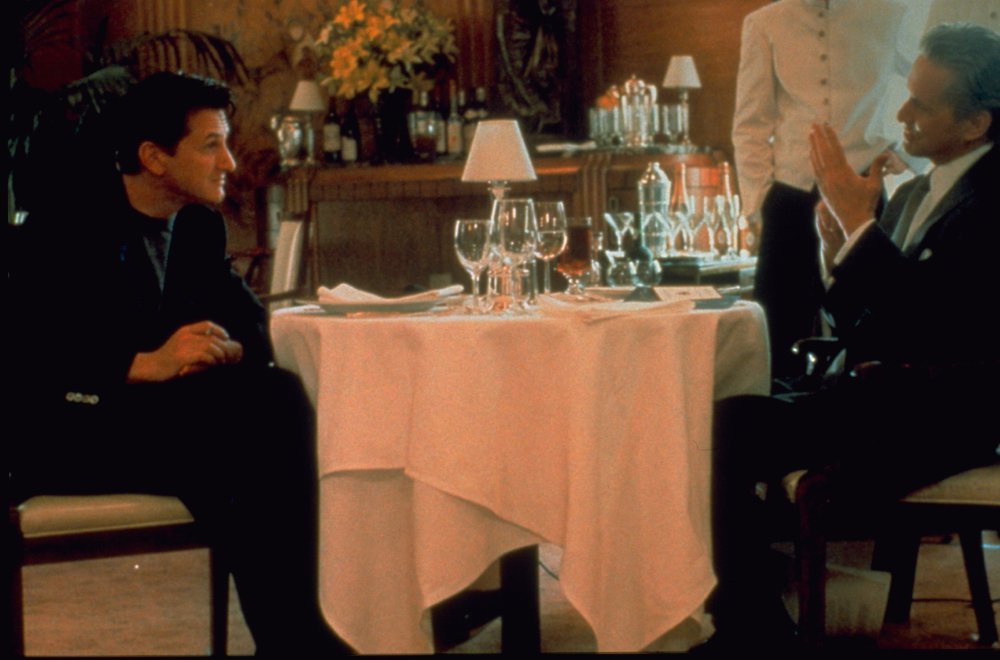
In an added twist of interplay between the films, Alien 3’s references to the idea of the alien as God, foreshadows Nicholas’ own manipulation by mysterious and unseen forces. In the case of Se7en, John Doe is a product of religious radicalisation, if not directly by an individual or group, then the dissemination of spiritual, philosophical and intellectual ideas. And, compared to the other two protagonists, Mills is interesting in that he’s unaware that Doe is inserting him into his ritualistic game and he needs to outrun a cruel fate, even destiny, that awaits him. This is signalled by the package that creates a cacophony of literal and metaphorical death.
Happy Ending?
Neither of Nicholas’ predecessors find liberation and salvation from their suffering. Both Ripley and Nicholas’ stories culminate in a fall. Ripley sacrifices herself to ensure the death of the Alien gestating in her body, like Nicholas’ father falling to his death. Meanwhile, Mills himself falls, surrendering to anger and grief, but his death is the metaphorical instead of the literal. Unlike his predecessors, Nicholas’ fall is a moment of rebirth, but the deaths of Ripley and Mills are consummated in Nicholas’ happy ending – the fall, and the literal and metaphorical death.
For Fincher, it’s an unexpected and subversive choice considering the conviction with which he had committed to dark and arduous character journeys. Why The Game escapes the shadow of Se7en and Fight Club is because it dares to be a bit different and find its own identity. Is it a forgotten masterpiece, or is it Fincher’s cult masterpiece? To attain the cult status, a film must first be overlooked or forgotten.
https://www.youtube.com/watch?v=lVgLaOwoXbs&t=5s&pp=ygUedGhlIGdhbWUgZmluY2hlciB0cmFpbGVyIGFycm93

